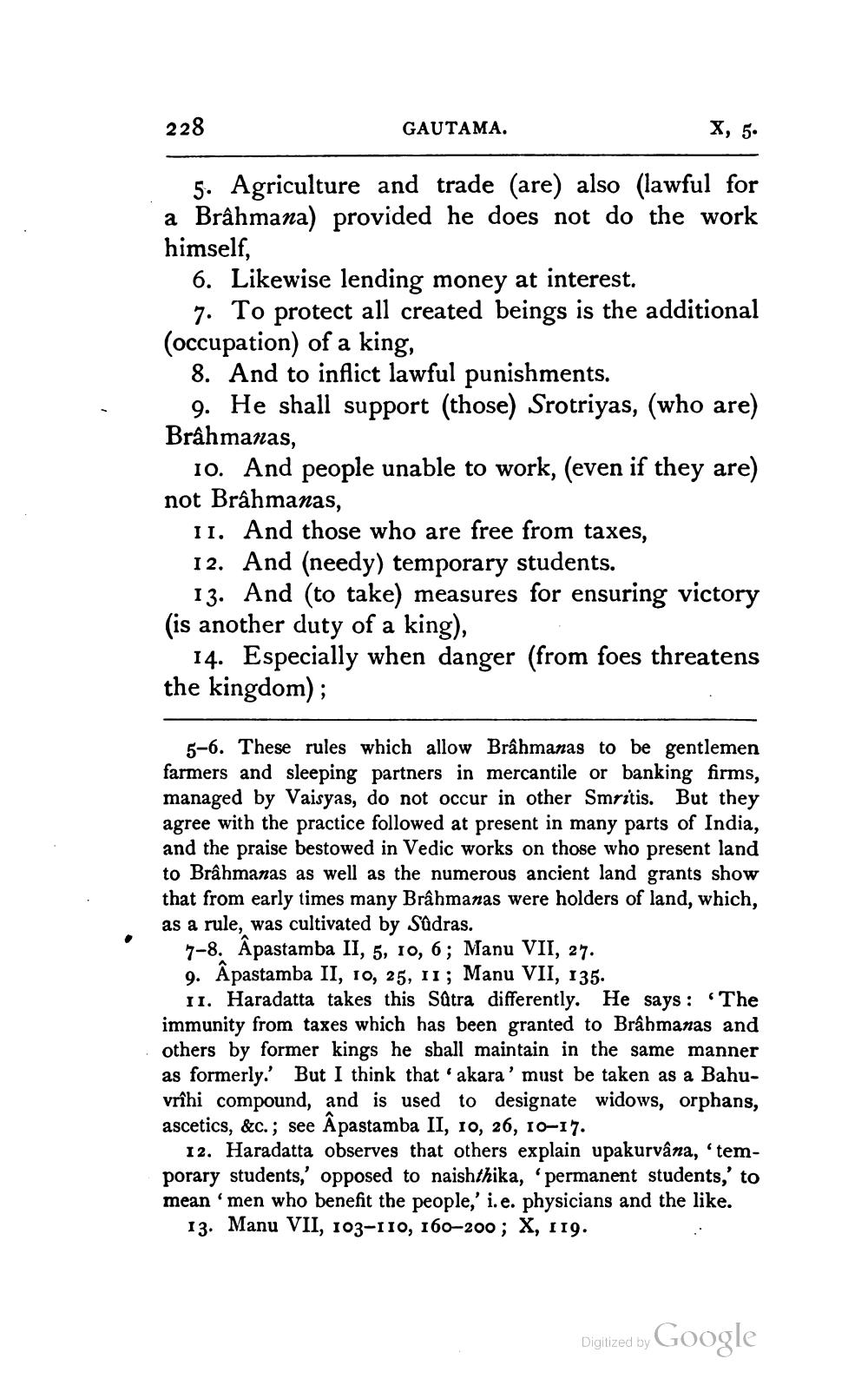________________
228
GAUTAMA.
X, 5.
5. Agriculture and trade (are) also (lawful for a Brâhmana) provided he does not do the work himself,
6. Likewise lending money at interest.
7. To protect all created beings is the additional (occupation) of a king,
8. And to inflict lawful punishments.
9. He shall support (those) Srotriyas, (who are) Brâhmanas,
10. And people unable to work, (even if they are) not Brahmanas,
11. And those who are free from taxes, 12. And (needy) temporary students.
13. And (to take) measures for ensuring victory (is another duty of a king),
14. Especially when danger (from foes threatens the kingdom);
5-6. These rules which allow Brâhmanas to be gentlemen farmers and sleeping partners in mercantile or banking firms, managed by Vaisyas, do not occur in other Smritis. But they agree with the practice followed at present in many parts of India, and the praise bestowed in Vedic works on those who present land to Brâhmanas as well as the numerous ancient land grants show that from early times many Brâhmanas were holders of land, which, as a rule, was cultivated by Sadras.
7-8. Apastamba II, 5, 10, 6; Manu VII, 27. 9. Apastamba II, 10, 25, II; Manu VII, 135.
II. Haradatta takes this Sätra differently. He says: The immunity from taxes which has been granted to Brâhmanas and others by former kings he shall maintain in the same manner as formerly. But I think that 'akara' must be taken as a Bahuvrihi compound, and is used to designate widows, orphans, ascetics, &c.; see Äpastamba II, 10, 26, 10-17.
12. Haradatta observes that others explain upakurvâna, 'temporary students,' opposed to naishthika, 'permanent students,' to mean 'men who benefit the people,' i.e. physicians and the like.
13. Manu VII, 103-110, 160–200; X, 119.
Digitized by Google




